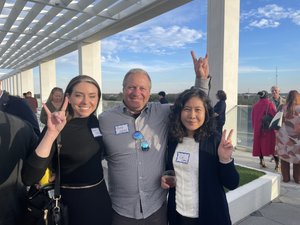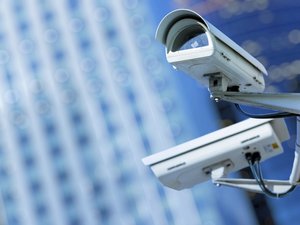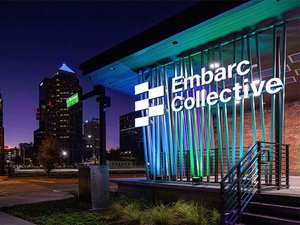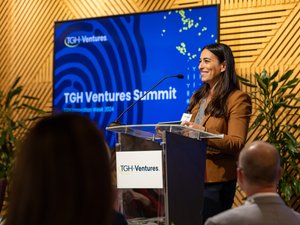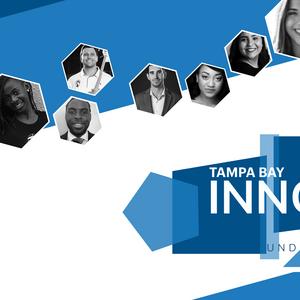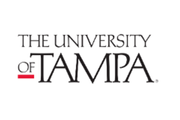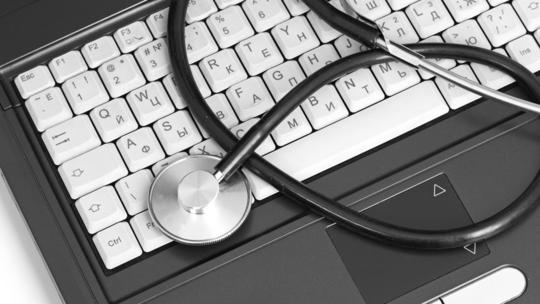
Imagine being alerted that you are going to have an adverse reaction to medicine prior to taking it, or being recommended for a clinical trial before experiencing any symptoms.
These are just some of the health-related insights that can be gathered from data collection through artificial intelligence, which the Moffitt Cancer Center is working toward with its latest hire.
Dr. Ross Mitchell was recently announced as the center's artificial intelligence officer.
"Moffitt is unique in investing in centralized infrastructure for artificial intelligence," Dr. Dana Rollison, Moffitt's vice president, chief data officer and associate center director for data science said. "Others are working on specific research projects, but there are very few cancer centers that have a dedicated and coordinated approach across clinical and research enterprises. That's what we’re seeking to do with the creation of this position."
"It's a great time to get into the area. In healthcare, it's like the internet before search was invented."
While artificial intelligence has become synonymous with innovation in the tech industry, the healthcare field has been known to lag behind. However, Mitchell said the work done at Moffitt is what caused him to come to the position in the first place, and he believes the center will eventually set a precedent for similar institutions.
"The premier academic centers like Moffitt are leading the way," he said. "The tools they build to help tackle cancer I believe will become mandatory in all hospitals. Hospital information systems tend to be silos that don’t communicate with each other and it's unlike other industries like banking and manufacturing. It's still an issue and it's part of the reason the government is encouraging to move to electronic health records. But Moffitt invested in that many years ago."
The importance of using artificial intelligence will only continue to grow, according to Mitchell, who compared the trajectory to the biggest example in the world: the internet.
"The future of AI in healthcare is a blue ocean opportunity; it's on the leading edge," he said. "It's a great time to get into the area. In healthcare, it's like the internet before search was invented. Five to 10 years from now, healthcare will be very different and hopefully a lot more pleasant for patients and providers."
Now that he is at the helm, Mitchell will focus on recruiting a team to help the hospital's artificial intelligence efforts — which could pose a challenge.
"He will come on board, assess what roles to bring in house and what partners we would want to pursue," Rollison said. "Data science is tricky. It's a very competitive market; there's not a lot of expertise, especially in the Tampa Bay area. It's growing, but it's hard to compete with other industries and we’re a nonprofit. So it will be a mix of hiring and partnering with other companies or even contractors and that's the reality of the data science field."
Along with talent acquisition, protecting the data the patients have consented to give is one of the hospital's top priorities.
"This is clinical data collected during the course of treatment and none of it ever leaves Moffitt," Mitchell said. "It's encrypted multiple times and there's many layers of security. My philosophy is the second most important thing to patients — after health — is privacy."
And it's that data which officials hope can be used for even bigger projects in the future: reporting on their health remotely.
"With the smart phones and related products out there, patients could directly talk about how they're feeling or answer questions through an app that will assess symptoms," Rollison said. "There are even researchers who will use AI to look at physical activity as a measure of how [the patient is] feeling and look how it may impact cancer outcomes. The sky is the limit."
But the future may be closer than it seems.
"In 1996, Bill Gates said we tend to overestimate the change that will happen in two years and underestimate the change that will occur in 10, which is spot on with artificial intelligence and health care," Mitchell said. "There's the impression there's a lot of talk with not a lot happening. There is a lot happening, but it's just behind the scenes. And boy, is it going to change."
